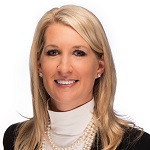Here are a few things you can do to get a new financial professional trained and up and running quickly:
1. Allow your new teammate to “own it.”
What better way to make your newest co-worker feel on board than assigning him or her a role on the team from the start? There can be a sense of nervousness starting in a new industry, so begin with giving your new teammate responsibilities in which industry experience, licenses, and so on are not necessarily needed in order to contribute to the team.
Task the colleague with important aspects of any practice, like owning the team communication, creation of roles and responsibilities, etc. Having ownership and adding value from day one will be crucial to the successful integration of the new financial professional onto the team. When you are new, and you haven’t opened an account or traded a stock, it can be hard to define success. But being able to say that you enhanced or implemented structure, processes, or systems can be very rewarding and, most importantly, it adds value to the business and to the client experience.
2. Embrace the fresh set of eyes.
The other great benefit of a new team member who is also new to the industry, is the new perspective this person will bring. It’s very possible that your team has been operating a certain way for as long as you can remember because “that’s the way it’s always been done.” This mindset kills innovation and can take great ideas off the table before they have even been considered.
Be open to the ideas your newest teammate has, and allow him or her to be the new, fresh set of eyes you may not even know your team needs. You might find opportunities for change or enhancements to your already existing processes that you currently have in place. Furthermore, make it known from the beginning that their voice will be heard by inviting him or her to make a positive change. Have open conversations during trainings and ask the new financial professional to speak up if they feel a different approach can be taken. This will make your new colleague feel not only comfortable with you and your team, but also confident in themselves.
3. Introduce the newest member to the team.
It is strongly encouraged to draft specific bullet / talking points to introduce the new financial professional to the team. How can both you and your new team member articulate the incredible value-add and benefits that this person brings to the table, or how he or she complements the existing skill sets and expertise already on the team?
Noting that the new financial professional “hasn’t been in the industry, but is learning” will instantly undermine his or her credibility. Instead of mentioning that, highlight the new colleague’s strong suits and be thoughtful when describing the value he or she adds, even from day one. Make sure that all team members get the chance to connect with their new co-worker, and articulate the same talents when introducing him or her to clients. This will enhance the client experience, and create a cohesive brand and messaging from the entire team.
Taking these steps, in addition to getting industry licenses, will put you on the right path to getting your newest teammate acquainted with the industry. Before you know it, your new financial professional may just be the old hand on your team.





